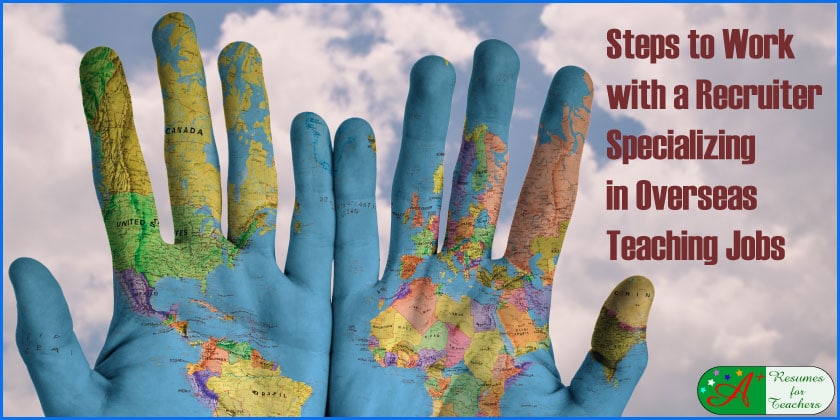Working with a recruiter specializing in overseas teaching can benefit your international job search. If your job hunting for international education employment opportunities has not paid off yet, maybe it is time to work with a professional recruiter who specializes in recruiting educators abroad.
Finding a teaching job overseas will take time and work, but there are steps you can take to make your job search more productive and successful.
First, the following two International recruitment websites for teachers could be worth checking out.
Footprints Recruiting – Overseas ESL teacher recruitment
Council of International Schools (CIS) – International schools recruitment
You can gain many benefits should you decide to employ a recruitment service or agency, and there are essential points you need to know first to avoid misunderstandings about the role of a recruiter.
Below is a list of the aspects you should consider when working with a professional international recruiter to find an overseas teaching employment contract.
6 Things to Understand About Working with a Recruiter
1. First, you must understand that a professional recruiter does not serve as your agent during your job search abroad. They are there to help you find a suitable teaching job abroad based on your qualifications, educational attainment, and personal preferences for the educational environment.
2. Besides an in-house recruiter representing the individual international schools, there are two types of recruiters: contingency and retained. When you say a contingency recruiter, the recruitment person has no contract with the school to search for possible applicants. They will receive no payment for searching and pooling teachers’ efforts until the applicant pays a placement fee.
On the other hand, the retained recruiter is a search firm with an existing contract with a particular recruiting company that has several schools as clients. The firm will look for potential candidates for a specific set of positions and be paid a retainer fee during the recruitment process.
3. Most recruiters often specialize in a particular field, so it is vital to work with a specific recruiter who specializes in the same area as you. If you want a teaching job abroad, it is best to approach a recruiter who focuses on sending teachers overseas; otherwise, you will be working with someone who doesn’t know enough to find that perfect teaching position.
4. Often, recruiters avoid dealing with applicants who want to get into a new career direction because they usually want to work with job candidates who are serious about keeping their career path in line with what they have started. Communicate you are highly flexible regarding relocation, as it will put you in a better position to establish a positive professional relationship with your chosen recruiter.
5. To find a trustworthy recruiter, ask for referrals from people you know who may have worked with a particular recruiter during their international teaching job search in the past. Use these contacts as your reference when you want to approach a recruiter they have utilized in the past to help you with your overseas job search.
6. Be honest with your recruiter about your job and salary expectations; being upfront will avoid misunderstandings during overseas teaching employment processing.
These pointers can help establish a good working relationship with overseas recruitment personnel by knowing what to expect and how to act professionally during your overseas job search with a recruiter.


